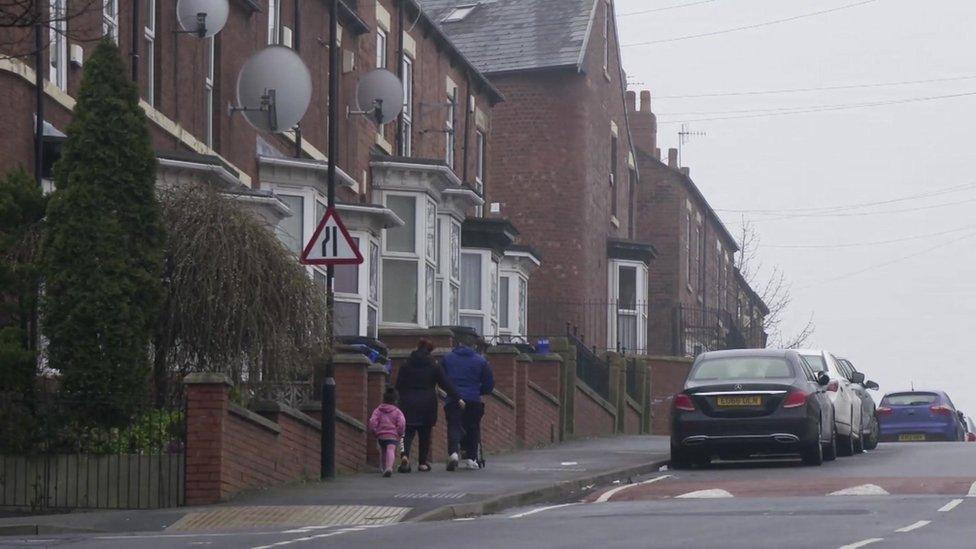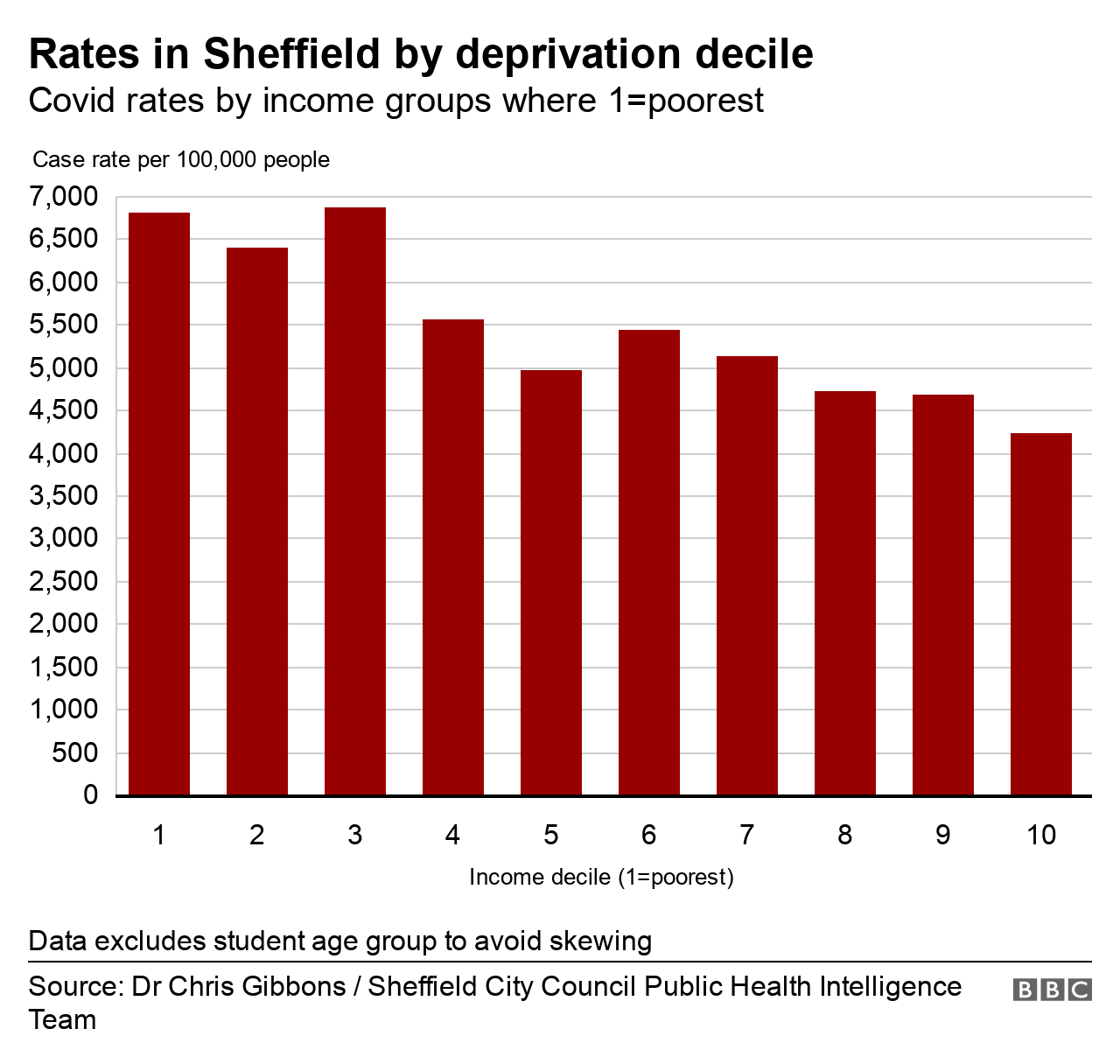Covid: The 'working poor' are hardest hit, Sheffield study finds
- Published

The fact Covid infection rates have been higher in poorer communities has been well documented. But analysis from one major UK city reveals it is not the most deprived who have borne the greatest burden - rather the so-called working poor.
A study by Sheffield council shows people in low-paid jobs, with insecure contracts, who couldn't afford to isolate have been hardest hit by the disease in the city.
The council split its population into 10 income brackets, from the wealthiest to the most deprived, and looked at Covid case rates in each group. While the rates were generally greater among the less well-off, they were highest of all in the third income group, rather than the poorest or second poorest.

"The impact is really on the working poor," said Sheffield's director of public health, Greg Fell. This group is "most likely to be low paid", on insecure contracts and unable to afford to isolate. "Transmission in that group of people is much higher," said Mr Fell.
Patrick Meleady recognises the impact first-hand, from his work with a food bank in east Sheffield.
"People here work in factories, are care workers, bus drivers and taxi drivers," said Mr Meleady. "So they're on the front line having an interaction," he said. "If you're in another area and you're more affluent and you've got a different career path, you're going to remove yourself from that [risk of Covid]."
The findings are supported by further research carried out by Sheffield City Council, which mapped Covid case rates as they spread across the urban population in the first wave.
The mapping, in the animated video below, shows that at the start, cases appeared among people living in the wealthier west of the city, driven perhaps by those returning from half-term ski trips.
How coronavirus spread across Sheffield during the early months of the pandemic
It then spread and remained stubbornly embedded in the poorer east. By the end of June, as national case numbers plummeted and England emerged from its first lockdown, the majority of new positive cases were confined to the most deprived area of the city. These poorer areas have continued to experience high rates of Covid in the second wave too.
The fact the disease has affected poorer areas more than wealthy ones in the UK has been well recorded. Work by the Office for National Statistics (ONS) shows those living in the most deprived neighbourhoods are more than twice as likely to die from Covid as those in the least deprived.
But Greg Fell is "surprised by the starkness" of what the council found in Sheffield. "It was always going to be something that was only unevenly or unequally split," he said.
It's not just jobs that play a role in Covid risks. Poor housing has been known as a factor for some time. A recent study of housing conditions looked at how the number of people living in a house, and the number of rooms, affected Covid risk.
The research, run by University College London's Virus Watch team, found a clear link.
Overcrowded households "had twice the risk of coronavirus infection compared to people living in un-crowded households," said Prof Rob Aldridge who runs the study.
The high verses low income split in Covid cases is consistent with existing differences in health in Sheffield.
The difference in life expectancy can be as much as 20 years, says Dr Jennie Joyce, a GP working in the city. And existing illnesses, such as diabetes and heart disease, may mean people getting sicker from Covid. She's not surprised by the impact.
"I think we did know that on the ground. It just wasn't coming down from the top," she said.
A report prepared by Sheffield's Citizens Advice Bureau shows those who were already struggling pre-Covid are in a worse position now.
It cites factors including not being able to travel to cheaper food shops and higher heating and lighting costs from being at home, and it warns the poor have got into greater debt.
Gulnaz Hussain, who works at Firvale Community Hub, says money is always tight for people in the nearby area. And when work is always uncertain for many in the city, Covid can feel like one more thing
"We have community and community resilience, and being able to know how to cope in difficult situations," says Ms Husain. "This is just another one of those risks."
Watch Deborah Cohen's report for Newsnight on BBC iPlayer (UK only).
- Published5 July 2023

- Published25 February 2021